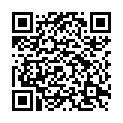|
|
|
| Module code: IPS.TEC2b |
|
1V+1LU (2 hours per week) |
|
2,5 |
| Semester: 1 |
| Mandatory course: no |
Language of instruction:
English |
Assessment:
[still undocumented]
|
EPS.TEC2b (P231-0154) European Project Semester, Bachelor, ASPO 01.10.2024
, semester 1, optional course
IPS.TEC2b International Project Semester, Bachelor, ASPO 01.10.2020
, semester 1, optional course
Suitable for exchange students (learning agreement)
|
30 class hours (= 22.5 clock hours) over a 15-week period.
The total student study time is 75 hours (equivalent to 2.5 ECTS credits).
There are therefore 52.5 hours available for class preparation and follow-up work and exam preparation.
|
Recommended prerequisites (modules):
None.
|
Recommended knowledge:
Knowledge in Arduino-Programming (e.g. as in IPS.TEC1)
[updated 01.07.2022]
|
Recommended as prerequisite for:
|
Module coordinator:
Prof. Dr. Marco Günther |
Lecturer: Prof. Dr. Marco Günther
[updated 02.03.2020]
|
Learning outcomes:
After successfully completing the course, the students master the basics of programming Matlab and Simulink. You can apply this knowledge to independently create, simulate and analyze models of technical systems such as the control of microcontrollers (e.g. Arduino). Graduates are able to check and optimize the practicality of technical systems by using simulation tools.
[updated 14.04.2020]
|
Module content:
Basics of Matlab / Simulink
Development of simulation models of technical systems
Analysis and interpretation of the simulation models
[updated 14.04.2020]
|
Recommended or required reading:
[still undocumented]
|

